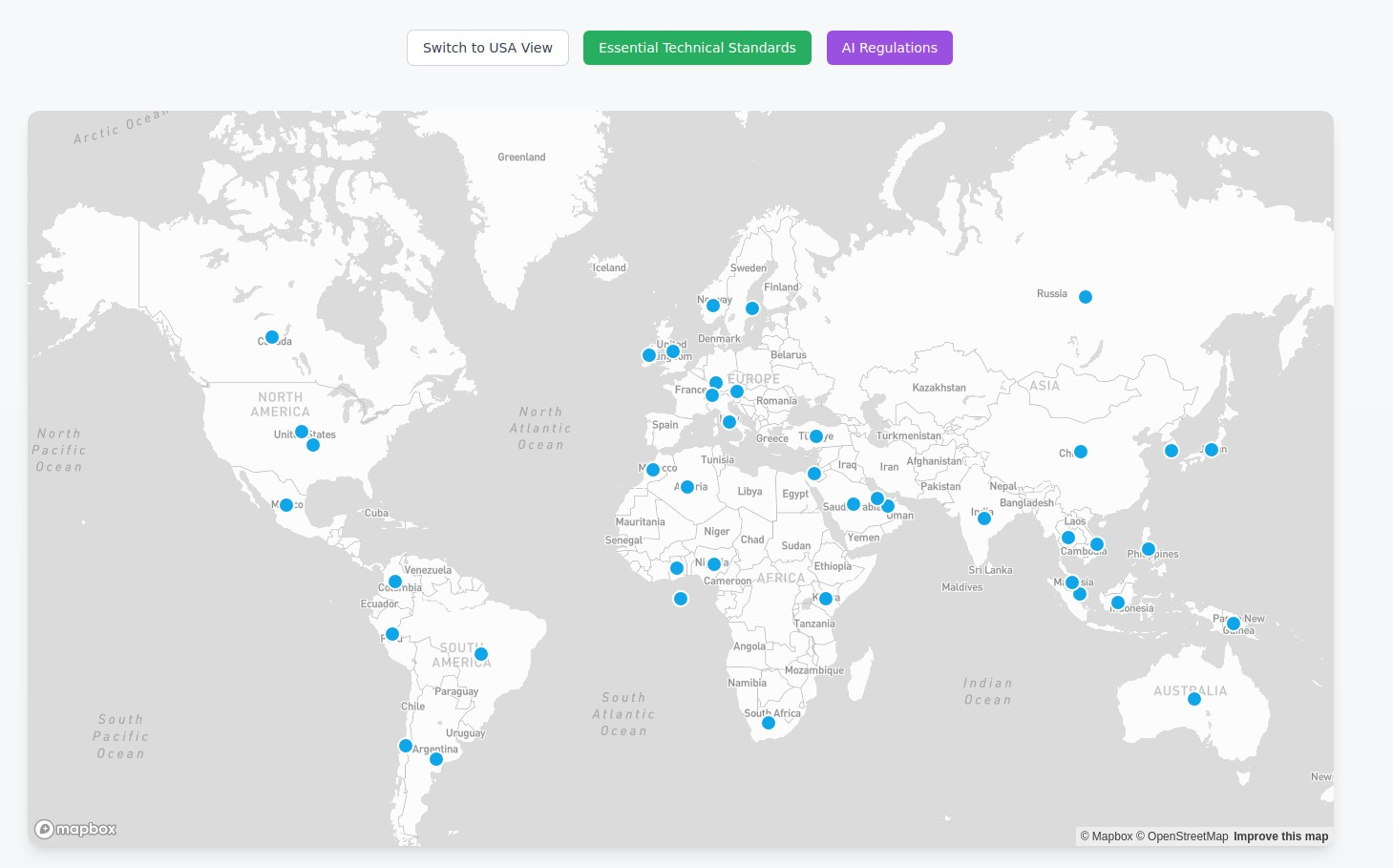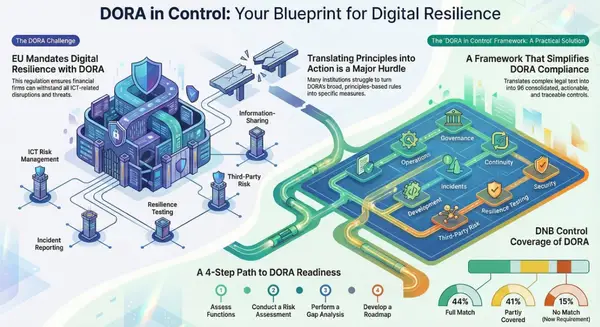U.S. State Privacy and AI Laws: Critical Compliance Deadlines and What They Mean for Your Business

Last Updated: September 3, 2025
As we navigate through September 2025, businesses face an unprecedented wave of state privacy and AI regulations that are reshaping the compliance landscape. With multiple laws already in effect this year and many more on the horizon, organizations must act swiftly to ensure compliance across a complex patchwork of requirements. This comprehensive guide breaks down the critical dates, requirements, and strategic considerations for navigating this evolving regulatory environment.

The Current State of Play: What's Already in Effect
Laws That Took Effect in January 2025
The year began with a significant expansion of state privacy laws. Five new comprehensive consumer data privacy laws went into effect at the start of 2025:
- Delaware (January 1): Delaware's consumer data privacy law marks the state's entry into comprehensive privacy regulation, with the Delaware DOJ providing implementation FAQs to guide businesses.
- Iowa (January 1): Iowa's privacy law adds another Midwestern state to the growing list of privacy-regulated jurisdictions.
- New Hampshire (January 1): With detailed FAQs from the state DOJ, New Hampshire's law includes provisions that will see its right to cure expire on December 31, 2025.
- Nebraska (January 1): The Nebraska Attorney General has published FAQs to help businesses understand their obligations under the new law.
- New Jersey (January 15): Slightly delayed from the January 1 cohort, New Jersey's law includes specific provisions with a right to cure that expires on July 15, 2026.
Critical CCPA Amendments
California continues to lead in privacy innovation with three significant CCPA amendments that took effect January 1, 2025:
- AB 1008: Addresses personal information in AI systems, requiring specific disclosures and protections
- SB 1223: Extends privacy protections to neural data, recognizing emerging technologies
- AB 1824: Clarifies opt-out rights in mergers and acquisitions scenarios
Universal Opt-Out Mechanisms (UOOM)
January 1 also marked the deadline for implementing Universal Opt-Out Mechanisms in Connecticut, Texas, New Hampshire, and Montana. These states now require businesses to recognize browser-based signals like Global Privacy Control for consumer opt-out requests.
Upcoming Critical Deadlines for 2025
Q3 2025: Where We Are Now
As of September 3, 2025, businesses should have already completed several critical compliance milestones:
- July 1: Tennessee's consumer data privacy law went into effect
- July 31: Minnesota's consumer data privacy law became effective, though post-secondary institutions have until July 31, 2029, to comply
Imminent Deadlines
September 24, 2025: Maine's transparency law regarding consumer transactions involving AI goes into effect, requiring specific disclosures when AI is used in consumer-facing transactions.
September 26, 2025: Oregon's consumer data privacy law amendments regarding motor vehicle manufacturer applicability take effect.
Q4 2025: Major Changes Ahead
October 1, 2025 represents a particularly significant compliance date:
- Maryland's consumer data privacy law becomes effective
- Colorado's children's privacy amendments under SB 41 take effect
- Montana's privacy law amendments (SB 297) become operative
- California Civil Rights Council's regulations on Automated Decision Systems in employment contexts become final
December 31, 2025 marks several important milestones:
- Connecticut's children's privacy law right to cure expires
- Delaware and New Hampshire's general rights to cure expire
- Annual deadline for Oregon data brokers to renew licenses
2026 and Beyond: Planning for the Future
The Next Wave (January 1, 2026)
The compliance burden intensifies significantly at the start of 2026 with:
- Three new state privacy laws: Indiana, Kentucky, and Rhode Island
- Texas's comprehensive AI law (HB 149), which also amends the state's CUBI and privacy laws
- California's AI transparency requirements under AB 2013 and SB 942
- Illinois Human Rights Act AI amendments affecting employment decisions
Colorado's AI Act (June 30, 2026)
Colorado's SB 205 represents one of the most comprehensive state AI laws, requiring extensive risk assessments, impact assessments, and transparency measures for high-risk AI systems.
Key Compliance Themes and Strategic Considerations
1. Data Broker Registration Requirements
Multiple states now require data broker registration with varying deadlines and requirements:
Registration Deadlines:
- California and Vermont: Annual registration by January 31 (Cal. Civ. Code 1798.99.82; 9 V.S.A 2446)
- Texas: Annual registration from the date of initial registration (Tex. Bus. & Commerce Code Sec. 509.005)
- Oregon: Annual license renewal by December 31 (HB 2052)
California's Enhanced Requirements:
- Quarterly privacy policy updates with consumer request metrics (starting July 1, 2025)
- Access deletion mechanisms every 45 days (starting August 1, 2026)
- Third-party audits every three years (starting January 1, 2028)
- Audit disclosure requirements (starting January 31, 2029)

2. Children's Privacy: A Comprehensive Framework
The expansion of children's privacy protections represents a major compliance challenge:
Already Effective:
- Virginia's children's privacy amendments (January 1, 2025)
- New York Child Data Protection Act (June 20, 2025)
Upcoming Requirements:
- Colorado's children's privacy amendments (October 1, 2025)
- Nebraska Age-Appropriate Design Code Act (January 1, 2026)
- Maryland Age-Appropriate Design Code Act - impact assessments (April 1, 2026)
- Arkansas Children and Teens' Online Privacy Protection Act (July 1, 2026)
- Vermont Age-Appropriate Design Code Act (January 1, 2027)

3. AI Governance and Transparency
The regulatory landscape for AI is rapidly evolving:
Current Requirements (2025):
- Utah AI disclosure law amendments (May 7, 2025)
- New York pricing algorithm disclosure law (July 8, 2025)
- Maine transparency in AI consumer transactions (September 24, 2025)
- California employment AI regulations (October 1, 2025)
Major 2026 AI Laws:
- Texas comprehensive AI law (January 1, 2026)
- California Generative AI Training Data Transparency (January 1, 2026)
- California AI Transparency Act (January 1, 2026)
- Illinois Human Rights Act AI amendments (January 1, 2026)
- Colorado AI Act - the most comprehensive (June 30, 2026)
Long-term AI Compliance:
- California ADMT regulations (January 1, 2027)
4. The Phasing Out of Cure Periods
Many states are eliminating opportunities to cure violations:
Already Expired:
- Colorado (January 1, 2025)
Expiring in 2025:
- Connecticut's children's privacy law (December 31, 2025)
- Delaware (December 31, 2025)
- New Hampshire (December 31, 2025)
Future Expirations:
- Oregon (January 1, 2026)
- Minnesota (January 31, 2026)
- New Jersey (July 15, 2026)
- Colorado children's privacy law (December 31, 2026)
- Maryland (April 1, 2027)
5. Universal Opt-Out Mechanisms (UOOM)
States requiring Global Privacy Control recognition:
- Connecticut, Texas, New Hampshire, Montana (January 1, 2025)
- New Jersey (July 15, 2025)
- Oregon and Delaware (January 1, 2026)
6. Specialized Health Data Protections
- Virginia's reproductive/sexual health information protections (July 1, 2025 and July 1, 2026)
- California's neural data protections under SB 1223 (January 1, 2025)
7. Platform and App Store Regulations
- Louisiana App Store law (January 1, 2026)
- Texas App Store Accountability Act (January 1, 2026)
- Utah App Store Accountability Act (May 6, 2026)
8. California's Expanding CCPA Requirements
CCPA Certification Requirements (starting 2028):
- Cybersecurity audits based on revenue tiers
- Risk assessment certifications
- Automated decision-making technology regulations
Strategic Recommendations for Compliance
Immediate Actions (September-December 2025)
- Conduct a comprehensive privacy program assessment to identify gaps against current and upcoming requirements
- Implement Universal Opt-Out Mechanism recognition if not already in place
- Prepare for Maryland's privacy law requirements before October 1
- Document AI systems in preparation for 2026's wave of AI regulations
- Review and update children's privacy practices ahead of new requirements
Medium-Term Planning (Q1-Q2 2026)
- Develop AI governance frameworks aligned with Colorado and Texas requirements
- Establish data broker compliance programs if applicable
- Implement enhanced children's privacy controls
- Build automated decision-making transparency capabilities
Long-Term Considerations
- Invest in privacy technology that can adapt to evolving state requirements
- Develop scalable compliance frameworks that can accommodate new state laws
- Build expertise in AI governance as regulations continue to expand
- Establish vendor management programs to address supply chain privacy requirements
Sector-Specific Considerations
Technology Companies
- Face heightened scrutiny under AI transparency laws
- Must implement comprehensive data broker compliance if applicable
- Need robust age verification and children's privacy measures
Healthcare Organizations
- Must navigate intersection of HIPAA and state privacy laws
- Face specific requirements around reproductive health information (Virginia)
- Need to address AI use in clinical decision-making
Financial Services
- Subject to potential conflicts between state laws and federal regulations
- Must address AI use in lending and pricing decisions
- Face specific requirements around financial data processing
Retailers and E-commerce
- Must implement universal opt-out mechanisms across multiple states
- Need comprehensive approaches to cross-border data transfers
- Face challenges in age-appropriate design implementation
The Path Forward: Building Resilient Compliance Programs
The proliferation of state privacy and AI laws represents a fundamental shift in how businesses must approach data governance. Organizations can no longer treat privacy compliance as a one-time project but must instead build adaptive, scalable programs capable of evolving with the regulatory landscape.
Key success factors include:
- Executive buy-in and governance: Privacy and AI compliance require board-level attention and resources
- Cross-functional collaboration: Legal, IT, security, and business teams must work together
- Technology enablement: Manual compliance processes won't scale across multiple state requirements
- Continuous monitoring: Regulatory requirements continue to evolve rapidly
- Privacy by design: Building privacy into products and services from the outset
Conclusion
As we progress through the remainder of 2025 and look toward 2026 and beyond, the complexity of state privacy and AI compliance will only increase. Organizations that act now to build comprehensive, scalable compliance programs will be best positioned to navigate this challenging landscape while maintaining competitive advantage.
The time for reactive compliance is over. Forward-thinking organizations are already planning for 2027's requirements while implementing 2025's mandates. By taking a strategic, proactive approach to privacy and AI governance, businesses can transform compliance from a burden into a competitive differentiator that builds trust with consumers and demonstrates commitment to responsible data practices.
This article is based on the comprehensive U.S. State Privacy and AI Laws Key Dates, last updated September 3, 2025. For the most current information and detailed statutory references, organizations should consult with qualified legal counsel and refer to official state resources.










